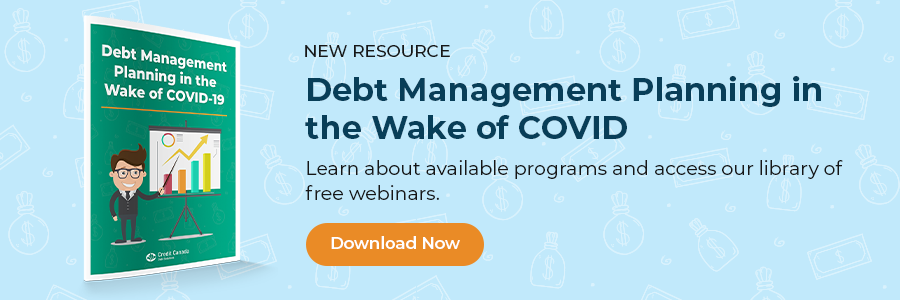
From Yukon to Ontario, Nova Scotia to British Columbia, the impacts of the COVID-19 outbreak have been felt by thousands of tenants and their landlords. Rent relief and other COVID-19 financial assistance programs helped many landlords stay in business throughout the pandemic, while renters were protected by holds/bans on evictions during the crisis.
Now that the country is beginning to focus on recovering from the pandemic, things are slowly starting to return to “business as usual.” Unfortunately, this can be a problem for many landlords and tenants who are no longer supported or protected by COVID government assistance programs.
It’s important for both landlords and renters to work together to overcome the challenges they face—including assessing what is or isn’t realistic for both.
How COVID Impacted Landlords and Tenants Differently
In the early phases of the COVID-19 pandemic, many provinces declared a state of emergency. This meant many “non-essential” businesses were closed as a result of these declarations. While most of these restrictions were eventually lifted, thousands of Canadians lost their jobs due to these closures.
In fact, the province of Ontario was forced to declare a state of emergency again in January 2021. This led to the issue of a new “stay-at-home” order that once again had a massive negative impact on businesses across the province.
This, in turn, put a strain on Ontario’s landlord/tenant relations, as tenants lost their primary income source (again) and, in many cases, had to rely on government COVID-19 assistance funds. Unfortunately, many tenants didn’t have enough income to pay their rent in full—as well as the back rent that had accumulated during the initial outbreak.
With tenants unable to pay, landlords lost a significant amount of income—threatening their own ability to pay bills and keep their businesses afloat. Fortunately, measures such as the Canada Emergency Rent Subsidy (CERS) helped many tenants of small businesses impacted by COVID-19 by providing funds that could be used to cover rent and mortgage costs.
Holds on Evictions During COVID
Despite rent relief programs and other COVID government assistance programs, many Canadians have experienced difficulties in paying their rent—especially in densely populated provinces like Ontario.
One of the challenges that landlords had to deal with during the pandemic was the hold that was put on tenant evictions. While this protected renters during the pandemic, there were still pitfalls for both renters and landlords.
How could an eviction ban affect renters? While landlords couldn’t initiate eviction processes during the ban, that didn’t make the actual debt from unpaid rent go away. Without some alternative plan to take care of the rent owed, renters could find themselves in a position where their debt skyrockets, and not have a sustainable means to repay it or catch up.
Meanwhile, landlords who had non-paying tenants saw significant losses during the pandemic. Ontario alone reported $87 million in rental arrears as of October 2020. While there were COVID government assistance programs in place like the CERS, landlords weren’t always able to completely make up their losses.
Why You Might Not Want to Evict Tenants
Normally, getting rid of a tenant who isn’t paying on time is worth considering. However, in a recessed economy where large numbers of Canadians are struggling to make ends meet, that may not be the best idea.
One of the worst things a landlord has to deal with is vacant units. An empty unit is a drain on resources that the landlord has to maintain and pay taxes on. Also, every day the unit is empty represents lost revenue. In Ontario, the average vacancy rate was 3.2% as of October 2020. At an average rental cost of $1,347, just one or two vacancies could become expensive. COVID financial assistance programs may not always be available or enough to cover these losses, either.
Trying to find a new tenant to live in a unit can take a long time in normal conditions. In a recessed economy, competition for new tenants will be incredibly high as every other landlord is looking for a tenant who can make payments. This competition can drive rental prices down and make it harder to fill vacancies. For example, COVID created a renters’ market in major cities like Toronto, leading many landlords to offer incentives that were unheard of pre-COVID.
As eviction bans lift, working with tenants to keep them in their current units, even if it means accepting slightly lower rental payments, can be the better option for some landlords—and vastly preferable to evicting tenants without any prospect of replacing them.
Ideas for Working with Tenants
There are different ways a landlord can work with a tenant who's having trouble paying their rent. Some ideas for landlords on how to work with tenants who have past-due rent payments include:
- Accept Online Payments. In some cases, rent may be late simply because the renter’s payment options are too limited or inconvenient, especially amid COVID. This is why some experts recommend that landlords collect rent online or make that an available option for renters.
- Reduce Rent Temporarily. Some landlords may decide to assist renters by accepting a reduced rent for their units for the duration of the emergency, until their renters can financially recover. Renegotiating leases can help to keep units filled instead of vacant—helping landlords recover some value from their units instead of getting nothing at all.
- Set Up Repayment Plans. If a tenant is undergoing temporary hardship, but would be able to recover in time, it can help to put them on a payment plan. A deferred rent payment plan could allow the tenant to make small, incremental payments on the rent they owe—helping landlords recoup a portion of their lost rent (and hopefully, the full amount after a period of time). It's important for both landlords and tenants to know their rights. Every province has its own renting rules; for example, here's Ontario's.
- Write Off/Forgive Tenant Debt. If a tenant is truly unable to pay at all, a landlord might opt to write off or forgive a portion of the renter’s debt. In some cases, rental losses a landlord is unable to collect on can be deducted from their gross rental income. While not perfect, it helps provide some relief come tax time.
Smart Money Decisions for Tenants: Renting Vs Buying
As a Canadian, should you rent or buy a home? The answer might surprise you!
In the Globe and Mail’s Stress Test podcast, personal finance team, columnist Rob Carrick and editor Roma Luciw, guide Canadian Millennials and Gen Zers as they face one of the biggest stress tests of their financial lives: COVID-19. In one episode of the podcast, the duo discuss the benefits and perks of renting versus buying, which can be more pronounced in post-COVID renters’ markets.
Traditionally, many Canadians tend to think of buying a home as the wiser investment — providing them with a long-lasting piece of equity they can use for life. However, there are a lot of drawbacks to home ownership, such as variable costs for maintenance, emergency repairs, property taxes, and a lack of flexibility that makes it hard to move if you need to for your career.
While renting has its own risks and challenges for renters (such as being evicted at the end of the rental term because the landlord found better tenants or wants to repurpose the space), it comes down to personal preference and lifestyle. And for many Canadians, the more “money wise” option is renting.
How Credit Canada Can Support Renters During COVID
Non-profit credit counselling organizations, like Credit Canada, can work with residential tenants and renters to help find solutions to their financial challenges. This includes taking a closer look at their income, expenses and debts to free up more funds, so they can keep up with rent payments and catch up on rental arrears, too.
Has COVID impacted your finances? Get in touch with Credit Canada’s certified Credit Counsellors for free help and advice! Call 1.800.267.2272 or book online.
Frequently Asked Questions
Have a question? We are here to help.
What is a Debt Consolidation Program?
A Debt Consolidation Program (DCP) is an arrangement made between your creditors and a non-profit credit counselling agency. Working with a reputable, non-profit credit counselling agency means a certified Credit Counsellor will negotiate with your creditors on your behalf to drop the interest on your unsecured debts, while also rounding up all your unsecured debts into a single, lower monthly payment. In Canada’s provinces, such as Ontario, these debt payment programs lead to faster debt relief!
Can I enter a Debt Consolidation Program with bad credit?
Yes, you can sign up for a DCP even if you have bad credit. Your credit score will not impact your ability to get debt help through a DCP. Bad credit can, however, impact your ability to get a debt consolidation loan.
Do I have to give up my credit cards in a Debt Consolidation Program?
Will Debt Consolidation hurt my credit score?
Most people entering a DCP already have a low credit score. While a DCP could lower your credit score at first, in the long run, if you keep up with the program and make your monthly payments on time as agreed, your credit score will eventually improve.
Can you get out of a Debt Consolidation Program?
Anyone who signs up for a DCP must sign an agreement; however, it's completely voluntary and any time a client wants to leave the Program they can. Once a client has left the Program, they will have to deal with their creditors and collectors directly, and if their Counsellor negotiated interest relief and lower monthly payments, in most cases, these would no longer be an option for the client.
Debt Management Planning in the Wake of COVID-19
Our free guide highlights how non-profit credit counselling, debt consolidation, and credit building work and what they can do for you!








